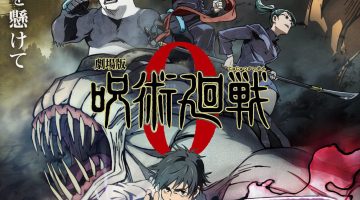5/5 stars
“BoJack Horseman” is the story of a 90’s sitcom actor who has lost relevance after the cancellation of his TV show, “Horsin’ Around.” A humanoid horse, he lives in a world inhabited by humans and anthropomorphic animals, trying to make his comeback while battling depression and alcoholism. This animated Netflix Original Series, in truth, is about depression, addiction, grief and the unique experiences for anyone affected by it.
For the past three seasons, BoJack (voiced by Will Arnett) has been in a spiral of bad habits and decisions he has yet to learn how to healthily cope with. Instead of dealing with his issues head on, he runs away from them. Season three ended with Horseman, devastated by the death of his former “Horsin’ Around” co-star and long-time friend, Sarah Lynn (voiced by Kristen Schaal), running away without a trace for the next year. We are left wondering, “Where’s BoJack?” and have yet to find out until the second episode of season four, “The Old Sugarman Place,” where he is hiding out in his family’s vacation house in Michigan. At the end of the episode, he decides to go home, thus beginning the journey of growth we will see Horseman achieve throughout the rest of the season.
Of course, this growth will not be easy nor will it happen at once; in episode six, “Stupid Piece of Sh*t”, we are intrusive of BoJack’s berating and hateful thoughts, visualizing firsthand what goes through his mind before, during, and after his decisions. We see parts of his illnesses we haven’t been able to before, and it’s heartbreakingly intimate. After getting into a fight with Felicity Huffman (voiced by Felicity Huffman), he casually thinks, “What if I kill myself by throwing myself off my deck in Felicity Huffman’s backyard? If she found my dead body that’d show her.” The line is partly comedic, but must be taken into consideration that suicidal thoughts play a fundamental part in his depression. He sees himself as worthless, restraining him from wanting to be better.
“BoJack Horseman” has never glorified mental illness, rather the show brutally verifies its dark and often ugly truth. BoJack’s mom, Beatrice Horseman (voiced by Wendie Malick), suffers from dementia and cannot recognize her own son when he comes to visit her. Episode 11, “Time’s Arrow,” is one of the series’ most powerful episodes yet. Beatrice goes back and forth trying to figure out what is present and past, remembering only a few faces and the rest being blank slates, small elements – like what someone is wearing – pop up up at random moments. Beatrice’s dementia connects with reoccurring flashbacks of Beatrice’s childhood in this and other episodes, illustrating the heavy grief her mom, Honey Sugarman (voiced by Jane Krakowski), goes through after her son is killed in World War II.
Mental health is as important as physical health for anyone, whether they are a famous actor or a homeless 20-something-year-old. BoJack, his friend and former roommate Todd Chavez (voiced by Aaron Paul), celebrity manager Princess Carolyn (voiced by Amy Sedaris), journalist Diane Ngyun (voiced by Alison Brie), and famous sitcom actor Mr. Peanutbutter (voiced by Paul F. Tompkins), are all characters who have faced depression and/or addiction in different ways throughout the series. This season presents them with situations emphasizing the significance of mental health, leaving them at their strongest and most vulnerable yet.
Though the show is primarily about mental health, it has infamously been unapologetically unsubtle to relevant cultural and political references, allocating tremendous comedic relief. The first episode in season four, “See Mr. Peanutbutter Run,” begins with Mr. Peanutbutter running for Governor of California. He admits he has “zero qualifications” and each day is surprised by how far he gets in the race, parodying the long history of celebrities running for political offices in the United States. Princess Carolyn wears a pink beanie with her ears poking out, a small tribute to the pink Pussyhats worn by thousands of women during the 2017 Women’s March on Washington, and there are similarities between the campaigns of Mr. Peanutbutter and current/past political leaders.
“Thoughts and Prayers” is an episode in which Princess Carolyn and director Lenny Turtletaub (voiced by J.K. Simmons) face a PR nightmare when a mass shooting in a mall interferes with the release date of their upcoming movie, “Ms. Taken,” a movie whose entire third act involves a mall shooting. Fans of “RuPaul’s Drag Race” are in for a surprise in episode seven, “Underground”; a news marquee calls out exploitative prison labor laws and the government’s ignorance of the Flint Water Crisis; handfuls of clever animal puns are thrown in almost every scene (can you guess why Ralph Stilton is a clever name for a mouse?). Diane uses avocados to get citizens to pay attention to politics, and listen closely for celebrity cameos including Archi Panjabi, Kristen Bell, Keith David and Natalie Morales.
One of the great qualities of “BoJack Horseman” is its heavy emphasis on the importance of representation. Season four continues the inclusivity of people, identities, and characteristics that are not often, if ever, represented in media. Stefani Stilton (voiced by Kimiko Glenn) has vitiligo, there are eight gay polyamorous men in a committed and healthy relationship, people of color with lead roles and diversity in shapes and sizes are all represented.
Todd comes out as asexual on his own terms, deciding to go to group meetings and meet other people who also identify as asexual. Not only does the show do a beautiful job of explaining asexuality, it is also a huge personal step for Todd when he comes out. His character development is the strongest; he is more self-sufficient, acting on his own business ideas alone, taking up the responsibilities of his elders. Every day he learns what is best for him and separates himself from situations not right for him (i.e. being around BoJack, whose friendship was toxic for Todd; fake-marrying actress Courtney Portnoy). If the show is renewed for another season, there are high expectations for these and many more underrepresented groups to be emphasized and given credit where credit is due.
Watching season four of BoJack Horseman is a powerful and unique experience to prior seasons; the show remains thoughtful of its storyline, maintaining continuity with running gags and visual metaphors, tying in past experiences with current ones, but their challenges are different. Now we can see them act on these challenges, we see their most intimate and broken moments: Princess Carolyn realizes it is okay to need people, Diane falls apart every time she tries to pick herself back up, BoJack, for the first time, works hard for the loving, positive relationship he needs with Hollyhock instead of pushing her away. It is exciting and poignantly magnificent to watch their evolution from the pilot in season one. This show is important and real, and it is a work of art ahead of its time.











